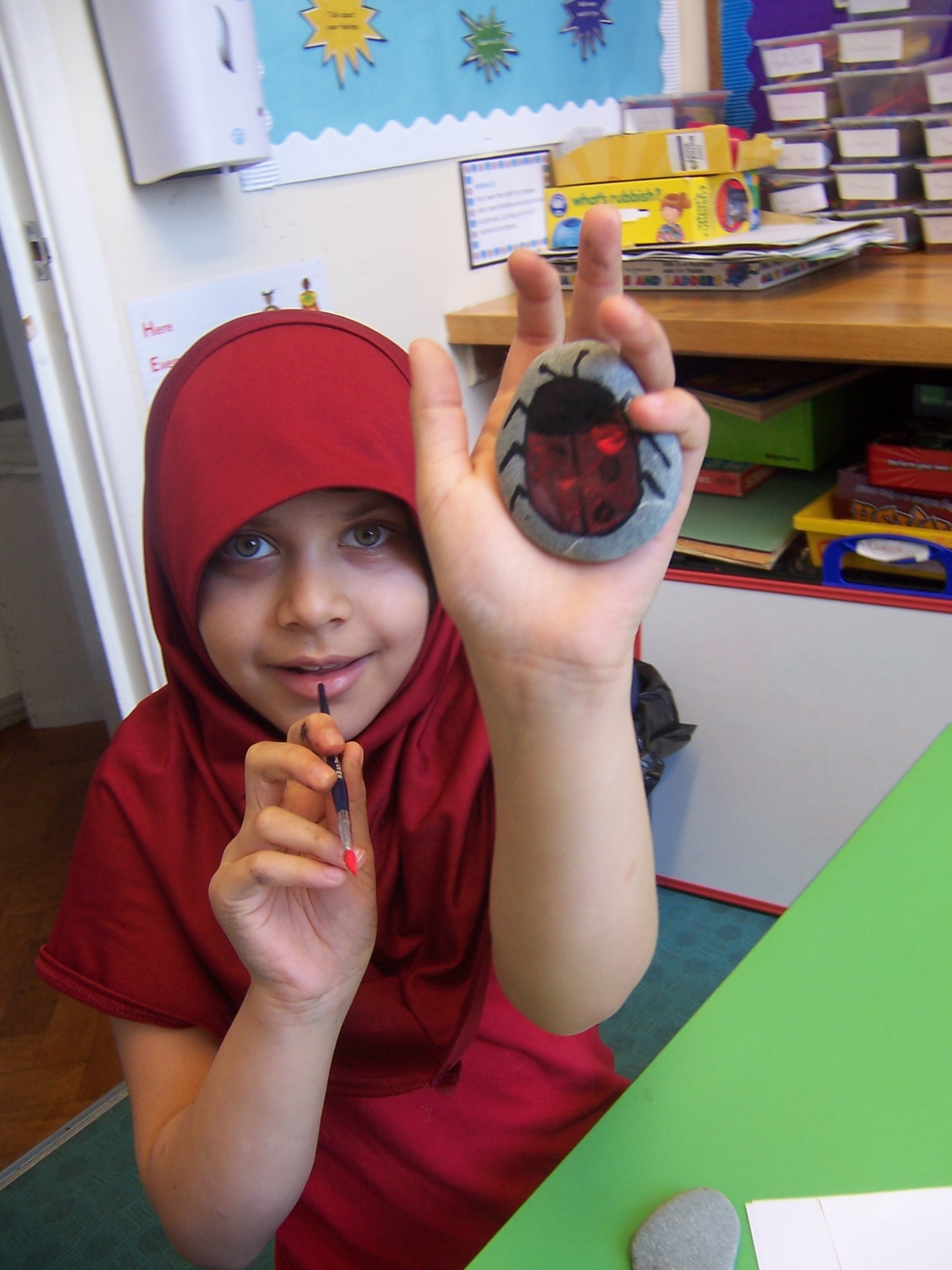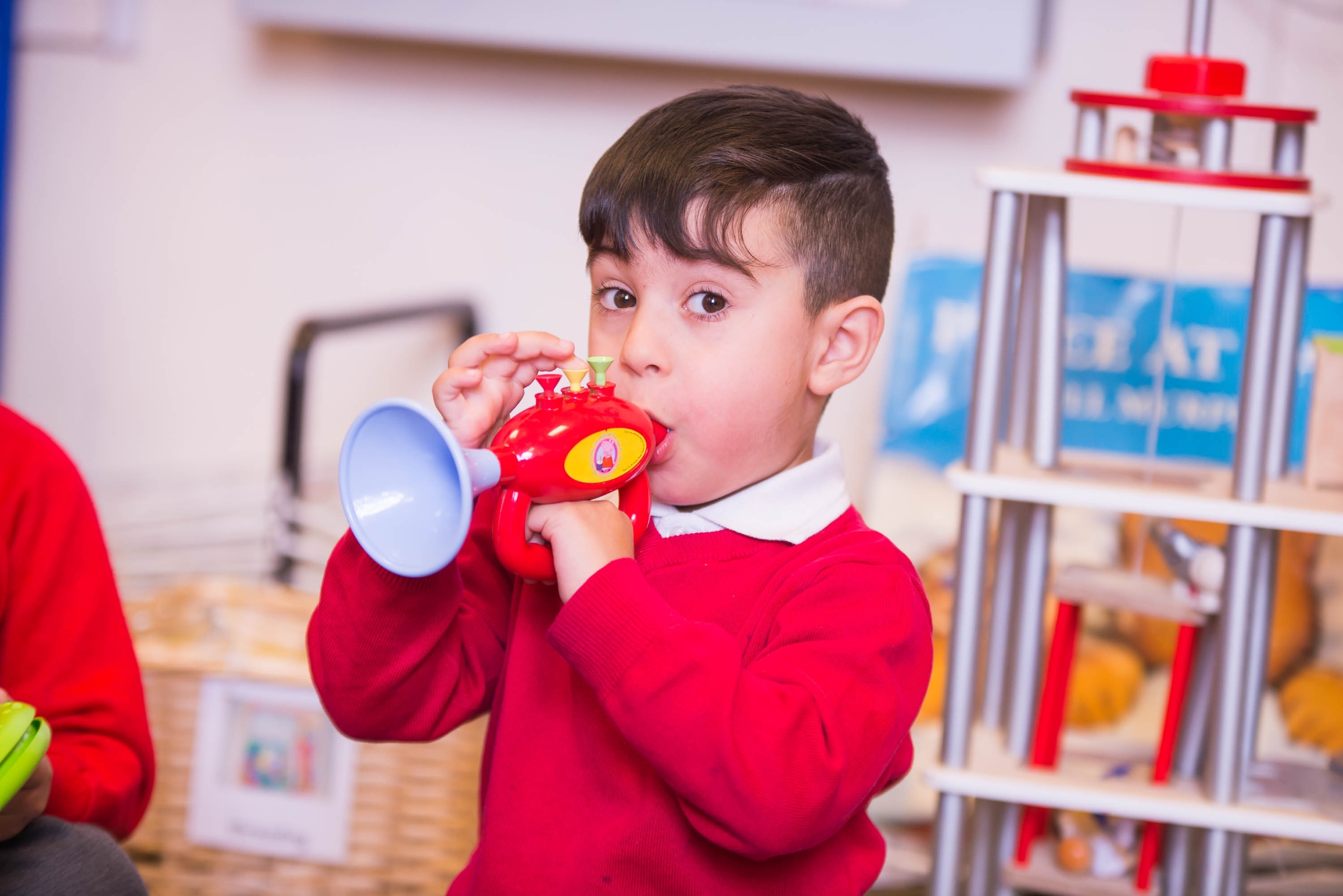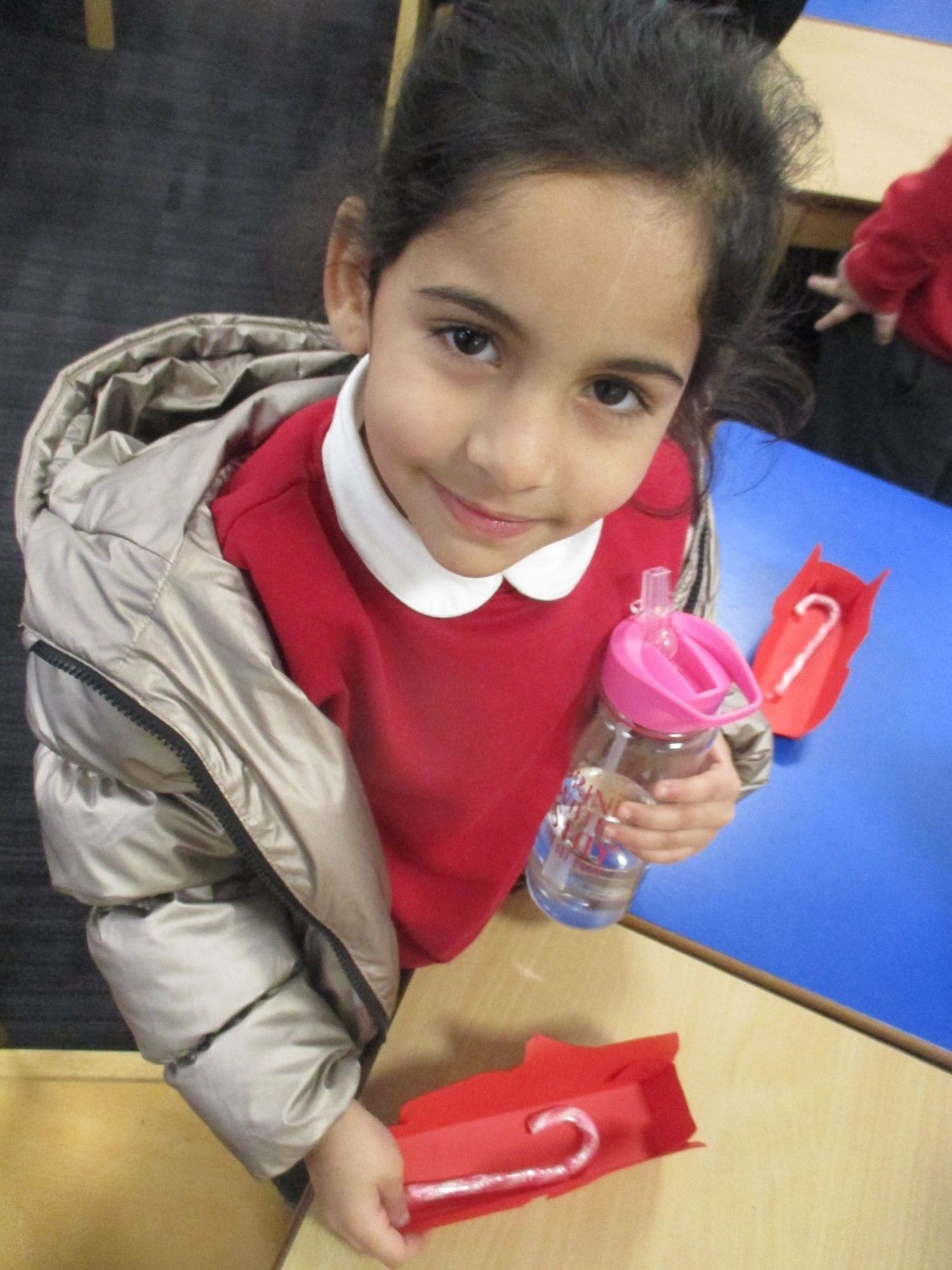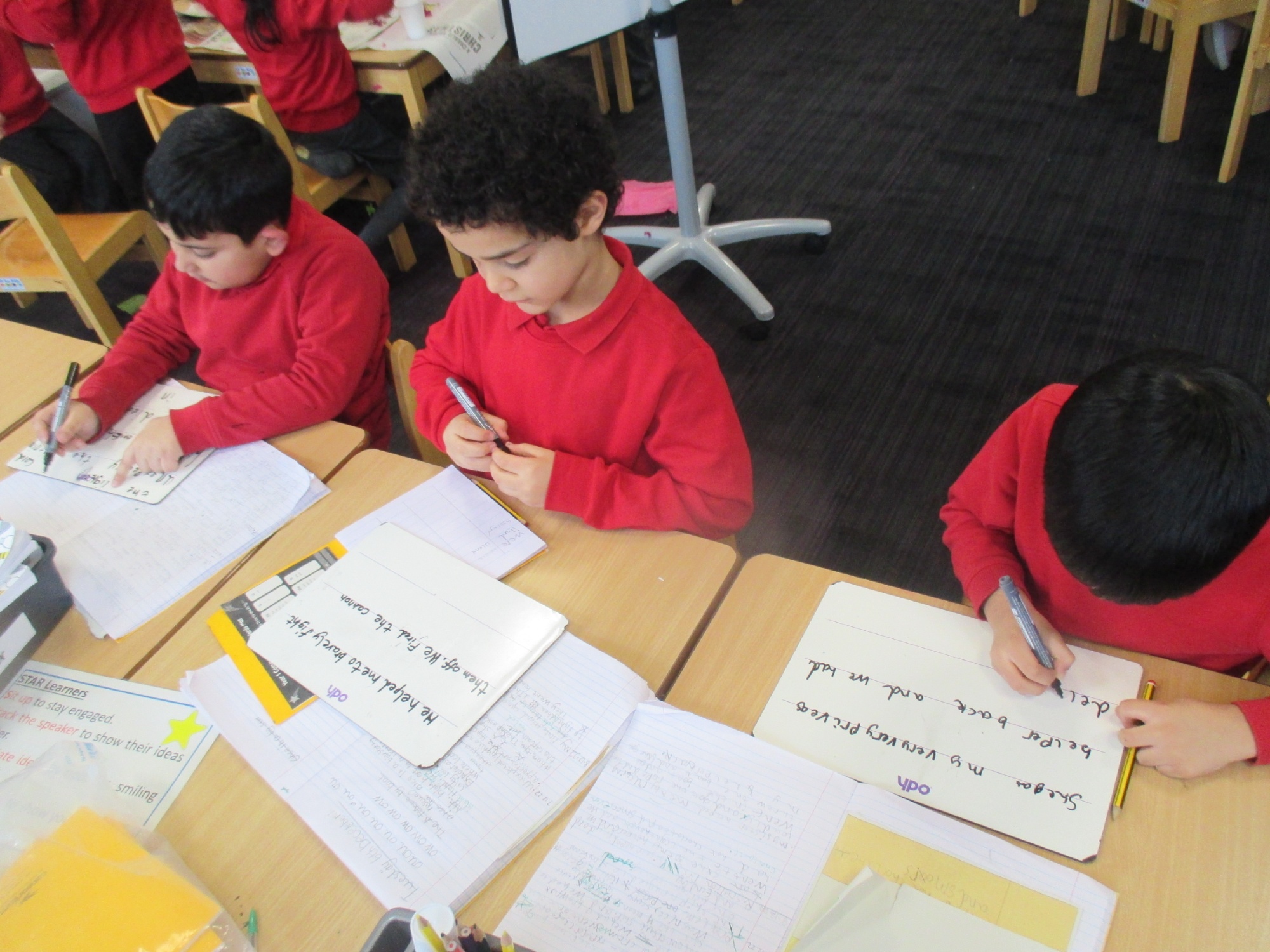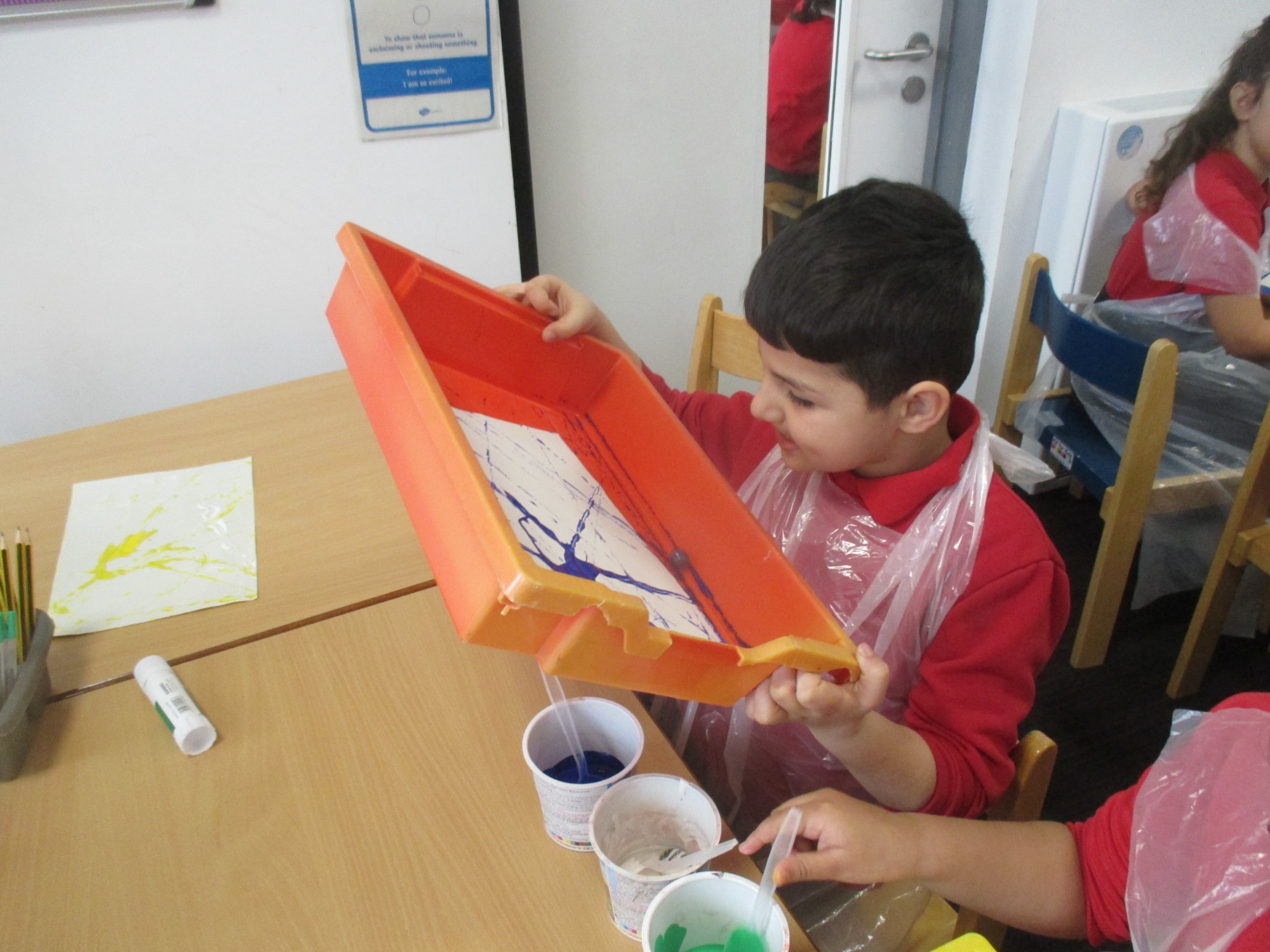English
Intention
What are we trying to achieve?
At St. Benedict’s Primary school our starting point is and always will be the children. English is at the heart of our curriculum, as we believe that literacy and language form the gateway for all future learning and is the basis from which all other subjects evolve.
Our aim is to provide our children with a high-quality education in English that will teach pupils to speak, read and write fluently to communicate their ideas and emotions. Through our teaching we will promote high standards of language and literacy by equipping pupils with a strong command of the spoken and written word across the curriculum.
We intend for all of our pupils to acquire the vital skills of language (speaking, reading and writing) to enable them to participate fully in society, as confident, responsible and rights respecting citizens.
Implementation
How do we organise this?
Our English curriculum uses the 2014 National Curriculum as our learning framework. Our long and medium term planning covers the subject content for Key Stage One and Key Stage Two. We teach writing through a cross-curricular approach, combining thematic Cornerstones Imaginative Learning Projects (ILP’s) with the programmes of study set out in the National Curriculum. Texts used in English link to the Cornerstones Imaginative Projects providing links in learning and opportunities to use new vocabulary across the curriculum.
Planning
Long term planning provides progression in writing throughout the key stages in a number of ways. In each year group the children are taught a range of fiction and non-fiction text types. As well as introducing new text types into each year group, the children are also given the opportunity to revisit previously taught text types to develop and expand their understanding.
Each unit of writing has a specific focus and writing toolkits with progressive teaching points are used in planning and teaching to give the children the opportunity to develop their understanding of specific story features, like settings and description. For example, to create suspense, in Nursery and Reception the children may put their main character into a scary setting but in Year 5 and 6 this will develop into personifying the setting to make it sound dangerous – use the weather and/ or time of day to create atmosphere. Shared writing is used to practise these key teaching points during English lessons.
Reading
In the Early Years and Year 1, children are taught to read through the systematic synthetic phonics programme Little Wandle. This ensures that all children are given a solid base to build upon. Pupils are supported through Keep Up sessions when they are identified as needing extra support to ensure they are able to maintain the pace of learning to enable them to meet or exceed the expected standard of the phonic reading check. Pupils also take part in two group reading practice sessions a week to ensure they have the skills to become fluent readers. Pupils are given access to the same texts as part of homework provision.
In Year 2 and KS2, pupils continue to develop their reading skills through daily whole class reading sessions. These focus on engaging in the text through a variety of activities including drama to develop children's comprehension skills as well as improving their vocabulary and reading stamina. Any children who are not at the expected standard in their phonics knowledge continue to receive daily phonics teaching.
Across the school, children are given daily timetabled opportunities to read for pleasure by selecting their own texts and independent reading where they are given an age appropriate banded text to read. Storytime is a significant part of the school day which is timetabled daily. During this time the children will listen to a linked text, a reading spine text or any other high-quality texts. In addition to weekly reading homework set at children’s reading level (Bug Club), pupils are also able to borrow 2 books from their class library.
Spoken Language and Vocabulary
Spoken language underpins the development of reading and writing. Our children are provided with a variety of quality language that they hear and speak in order to develop their vocabulary, grammar and their understanding of writing and writing. We provide progression in sentence structure, word structure/ language and terminology across each year group. This provides our children with a constantly developing and increasing word bank to support their reading and writing. Spoken language opportunities are also provided through the use of the daily dashboard and vocabulary ninja (word of the day). Teachers also ensure that key vocabulary is visible in the classroom, referred to and understood by the children.
Handwriting and Grammar
Handwriting is taught through the Penpals Handwriting scheme to provide the children with frequent, discrete and direct teaching of handwriting, as required by the National Curriculum 2014. It offers clear progression from EYFS to Year 6 by teaching handwriting through five developmental stages: preparation for handwriting; securing correct letter formation; beginning to join along; securing the joins and practicing speed and fluency and developing a personal style. The children are also given daily opportunities to develop their handwriting through teaching and feedback across the curriculum.
Grammar is taught through the Nelson Grammar scheme to enhance and embed the essential grammar skills for Year 1-6 to ensure that children meet the high expectations set out in the National Curriculum 2014.
Impact
How do we know it is successful?
Our English curriculum ensures that the statutory requirements set out in the programmes of Study for English according to the National Curriculum 2014 are covered in depth to equip our children with a strong command of the spoken and written word in order to promote high standards of language and literacy.
Through combining thematic Cornerstones Imaginative Learning Projects (ILP’s) with the programmes of study set out in the National Curriculum, we are able to develop imaginative English units of work to move children from dependent to independent and confident writers, speakers and readers.
The English curriculum, including planning, teaching, children’s work, teacher and pupil voice are monitored half-termly in order to move teaching and learning forward. Rigorous data analysis is carried out to identify gaps in learning, future CPD and to close the gap between the school’s data and the national average across all year groups,
Our English curriculum, alongside effective teaching, is helping our children to become better speakers, listeners, readers, writers and thinkers. Therefore, forming the gateway for all future learning and guiding our children on a path to becoming successful learners, responsible and rights respecting citizens and confident individuals.
English Subject Overview



